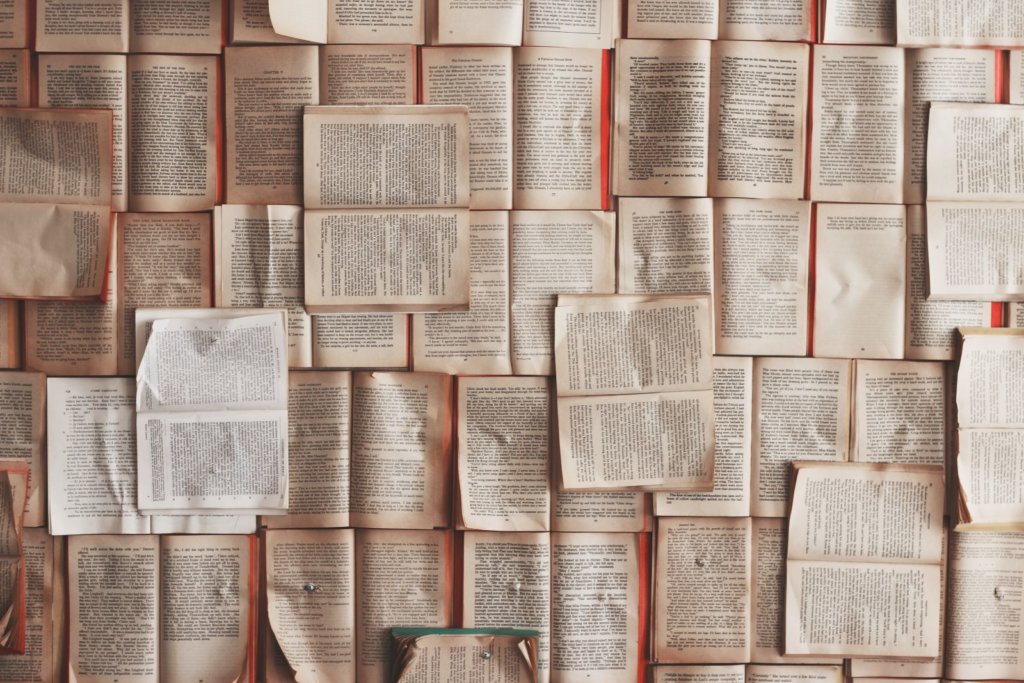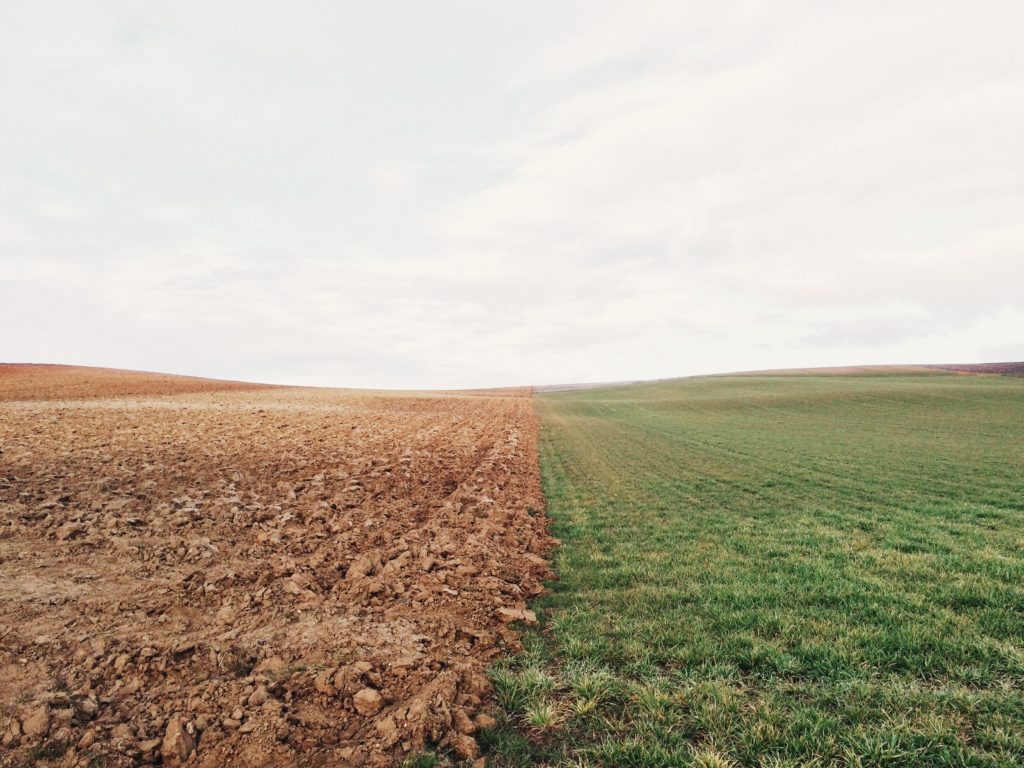I keep thinking about fantasy, delusion, and reality. A spiritual teacher I like was convinced Kamala Harris would become the next president. When Trump won on election night, she said, “Kamala won’t concede! She’ll ask that the election be investigated!” When that didn’t happen, this teacher said, “The election won’t be certified!” And then when that didn’t happen, she said, “Just wait until late April or early May. This election isn’t over! It’s all about to end!”
What interests me is not the content – people believe wacky things all the time – it’s that she kept saying her intuition told her all of this was true. And not only her intuition, but intuitive tools like tarot cards and signs. All of her tarot cards said more would be revealed. And she received sign after sign, things like walking around town and seeing t-shirts and bumper stickers that said, “The End,” which she interpreted to mean Trump’s reign was about to come to an end.
Yet here we are in mid-May and Donald Trump is still president. So what gives? How could her intuition be so wrong? Especially when she received external signs? It’s not like you can make that sort of thing up. Here’s the thing: An incredibly painful lesson I’ve had to learn over and over again is that signs are literal. People read into them, adding in their own layers, but usually, the universe will answer the question you ask.

Let yourself ground in reality, not fantasy. Photo by Stas Ostrikov on Unsplash
Here’s a perfect example from my own life: When I was in my early-20s, I was completely enamored with an avoidant man. I didn’t know he was avoidant because I didn’t learn that term until later, but what I did know is we had a strong connection, yet he ran away from it. He was hot and cold, giving me mixed signals, and it made my head spin. Was this something worth pursuing or not? So I asked the universe. I said, “Who is my soulmate?” and literally in that moment, a truck drove by with just this man’s initials spray-painted across the side in giant letters. It seemed pretty clear to me. He was my soulmate! We would get married and live happily ever after!
Spoiler alert: We didn’t. I thought “soulmate” meant romantic partner but it doesn’t. A soulmate is someone who you have a deep connection with and often impacts your life in a profound way. This could be a friend, a boss, or even a pet. And this man? He absolutely changed the trajectory of my life. It was because of him that I pursued healing and immersed myself in the world of mental health, so much so that I’m a ghostwriter for therapists. I became a different person as a result of our connection. Was he my soulmate? Yes. Was he my “sitting in rocking chairs growing old together partner?” No.
That’s the thing about signs and intuition – we receive information but the interpretation is likely skewed based on our desires, biases, and more. This is also why using our brains is so important. My spiritual teacher says, “The highest treasure of human beings, distinct from other creatures, is their intellectual superiority. Had there been no intelligence in humans, they would hardly be different from other animals.”
He encourages everyone to practice discernment. To use their brains as well as their intuition. Like if your intuition says Elon Musk used his internet provider Starlink to steal the 2024 election for President-elect Donald Trump, to check whether voting equipment is even connected to the internet (it isn’t). Or if your intuition says to buy a car and then you take it to two mechanics and they say the car is a lemon, trust them.
I know it can be excruciatingly painful when your intuition doesn’t match reality. I don’t want to minimize that because these experiences of learning I misinterpreted my intuition have been the most heart-wrenching of my life. And at the same time, reality is reality. I’d much rather be grounded in reality than live in some fantasy land that never comes true. I’ve been in fantasy plenty of times and it only ever ends in disappointment and heartbreak, which is much worse than seeing things as they really are.
I dream of a world where we understand that interpreting our intuition is an art, not a science. A world where we recognize that the universe is very literal and oftentimes we’re the ones that add in layers and meaning to the signs and messages we receive. A world where instead of relying solely on intuition, we also use logic and reason. A world where we ground ourselves in reality because reality is where life happens.
Another world is not only possible, it’s probable.
I feel unsettled after learning what happened to novelist Salman Rushdie on Friday. If you’re unaware, he was stabbed as he prepared to give a lecture in upstate New York. He suffered wounds to the neck and abdomen and is thankfully on the road to recovery, according to his agent.
It’s believed the attack is in connection to Rushdie’s late-80s book The Satanic Verses, which many Muslims consider blasphemous as it mocked or at least contained mocking references to the Prophet Muhammad and other aspects of Islam. There’s also a character based on the Supreme Leader of Iran and after it was published, Iranian leader Ayatollah Ruhollah Khomeini issued a fatwa, or edict, calling for Rushdie’s death.
I’m upset by multiple things. One, the stabbing occurred during a lecture, an event you would think was safe and peaceful. Two, multiple people were so enraged by words, not actions, words, they sought to kill someone. That’s pretty intense. And problematic because to quote Rushdie, “The moment you say that any idea system is sacred, whether it’s a religious belief system or a secular ideology, the moment you declare a set of ideas to be immune from criticism, satire, derision, or contempt, freedom of thought becomes impossible.”

Critical thinking is key. Photo by Patrick Tomasso on Unsplash
Freedom of thought becomes impossible because instead, people sink into dogma. Dogma is thinking without logic or reasoning. And once a person does that, they start doing something because someone else told them to, which is dangerous because they can become easily manipulated by others. They fall prey to schemes and cause real harm to themselves and others.
Dogma can also be the reverse, by the way. It can be disregarding what a certain person, group, or organization says just because of their identity. My spiritual teacher says, “[D]ogma has had an extremely negative influence on ordinary people .… By arousing narrow sentiments, the adherents of dogma hope to fulfill their selfish aspirations … The followers of dogma do not want people to tread the path of rationality … The worst propounders of dogma – the kings of dogma – do not want people to develop mental clarity. They do not want the penetrating illumination of the sun’s light to pierce through the mists of dogma. They do not want people to bathe in the radiant light of the day and stand under the clear, unclouded sky.”
It’s also the case we fall prey to dogma internally, without someone acting as a puppeteer. We see this on social media with “stans,” or super fans that are overzealous and obsessive. They think the person they follow can do no wrong, and when the person inevitably makes a mistake, because, hi, they’re human, some stans dig their heels in and defend the person. People who aren’t super fans will engage in a takedown and explain why the person is trash and should be “canceled” or stop receiving support. From Merriam-Webster, “The reason for cancellation can vary, but it usually is due to the person in question having expressed an objectionable opinion, or having conducted themselves in a way that is unacceptable so that continuing to patronize that person’s work leaves a bitter taste.”
I understand that reaction and sometimes I think it’s warranted. However, this approach misses nuance. Every person is both a hero and a villain. Every person is capable of good and evil. It doesn’t make sense to follow a person as if they are an infallible, perfect human being. I know it’s funny to quote my spiritual teacher again here, but even he said, “Even if a young boy says something logical, it should be accepted, and if the Supreme Creator Brahma says something illogical, it should be rejected as rubbish.”
I agree. Use your brain. Dogma can be alluring because it’s easy and doesn’t require effort, but you have a brain and if you don’t use it, that’s not beneficial for anyone.
I dream of a world where we recognize no idea, person, or belief system is above scrutiny. A world where we don’t accept someone else’s words hook, line, and sinker, no matter who they are. A world where we use logic and reason to make the world a better place and bathe in the radiant light of the day.
Another world is not only possible, it’s probable.
I’ve written before about how Donald Trump represents our collective shadow in terms of racism and xenophobia, but he also represents the shadow side of the internet. His latest move withdrawing from the World Health Organization (WHO) is like unfriending someone on Facebook because you don’t like what they’re saying.
First off, I want to say I think the “unfriend,” “block,” and “mute” features on social media are important and necessary because no one should be subjected to abuse, but also there can be an element of using those features to create confirmation bias or insularity. These days you don’t have to listen to anyone who disagrees with you. You can ignore what other people say with relative ease. I notice this in my own life – whenever I post about Black Lives Matter on my professional Instagram account, I lose followers. That’s OK, I’ll keep posting about it, but it speaks to the shadow side of the internet.
We get to intentionally create our reality, our communities, and connect with like-minded individuals, which is great! But it can also lead to a disconnect from reality. If I only surround myself with people who think the Earth is flat, of course that will be what I believe. The statistics vary, but anywhere from 2% to more than 20% of people believe the Earth is flat! Even if it’s 2%, that’s a huge swathe of people. The notion continues to gain momentum because it has support from numerous Facebook groups and Youtube channels. The way we human beings determine what’s real is by consensus, by checking in with others. “Did you see that UFO zipping across the sky? No? Well I must have imagined it then.”

Is she actually floating?!? Photo by Ashley Bean on Unsplash
Because of the internet, we can find people who support our version of reality and that’s what Donald Trump does. How ironic that a “reality” TV star has no sense of consensus reality. He’s so used to creating the truth and now he gets to broadcast his reality to the world. He speaks to the seductive idea that the truth can be whatever you want it to be. It can feel empowering to say, “My truth is my truth” and ignore what other people say, especially if a person has experience with not being heard or believed. However, I’m going to quote Stephen Dinan, CEO and founder of The Shift Network, an alternative media company. He writes:
“The good aspect of claiming our own internal truth and authority – which human potential teachings typically promote – turns ugly and becomes a descent into ignorance when people stop respecting the hard-earned disciplines behind so many mainstream endeavors from science to journalism to medicine. Once we stop respecting expertise and the disciplines that inform that expertise, we put ourselves on a path to ignorance.
Precisely. When we tune out all other voices, we become ignorant. It’s what Donald Trump is advocating by withdrawing from the WHO. It’s what he’s advocating when he says people should stop getting tested for COVID-19. Because if you stop getting tested that means you don’t actually have the virus, right? Well, no. It just means that you can pretend everything is fine and delude yourself.
I can tie this in to my spiritual practice because on the one hand, my spiritual teacher advocates for self-realization, for developing intuition and connection to spirit so the internal reality is important. But on the other hand, he also urges us to have discernment, to use our brains when we’re in the world and reject what is irrational. In fact, he says, “Even if a young boy says something logical, it should be accepted. And if the Supreme Creator Brahma says something illogical, it should be rejected as rubbish.”
I dream of a world where we use our brains. A world where we understand our own version of reality is not the only version. A world where we realize it’s important to look at multiple perspectives and take into account what other people are saying. A world where we accept what is logical and reject what is not.
Another world is not only possible, it’s probable.
There’s a lot of talk recently about how Americans are uninformed, uneducated, etc. I’ve seen quote after quote about how we need to fix our education system so that tyrants are not believed and do not come into power. However, as someone who has a college degree, I do not consider myself to be uneducated, yet I’m still taken in by high-minded speeches. I am easily swept away by rhetoric, especially if the person is addressing a pain point.
I read an article recently about why poor whites chant “Trump, Trump,” and the author said it’s for so many reasons, but one of them is Trump speaks to the frustration of poor whites. Of people who feel like the government doesn’t care about them. The author said, “Trump supporters believe he’s different. They believe that he cares about us [poor white people], that he tells it like it is, that he gives us a voice, that he can’t be bought because he’s already rich, that he’s railing against politics as usual.”
Related, I read another article about the historical perspective of what will happen next with Brexit and Trump. Tobias Stone said, “Lead people to feel they have lost control of their country and destiny, [and] people look for scapegoats, a charismatic leader captures the popular mood, and singles out that scapegoat. He talks in rhetoric that has no detail, and drums up anger and hatred. Soon the masses start to move as one, without any logic driving their actions, and the whole becomes unstoppable.”
The part that stands out to me is “rhetoric that has no detail.” I think it’s crucial not that we become more educated, but that we become more discerning. To ask ourselves, “OK, you promise to make America great again, but how and at what cost?” It is so easy to get swept away by something because it sounds good. It’s much harder to use our brains to dig in and figure out the details. I say this as someone who struggles with discernment herself. I can’t tell you how many books I’ve purchased because the author proclaimed they had all the answers and could help me live the life of my dreams.
My spiritual teacher is a big advocate of discernment or discrimination. He says it is only through discrimination the mind can determine the goodness or evil in a thing or in its uses. And also that proper questioning is vital. Proper questioning is “asking questions to the right people who will provide appropriate answers to help one solve any problem one may encounter.”
I appreciate that he says the right people. That means I need to ask questions of people who know more than me, someone more experienced. An expert if you will, not someone who sounds like they know what they’re talking about but is actually full of crap.
What I’m advocating here is not that we become more educated, more informed, but rather that we approach things with a healthy degree of skepticism. That we ask ourselves, “How do I know this is true?” instead of assuming automatically it is. Does this post sound preachy? If so, it’s because I’m gunning for our future. When we stop discerning, that’s when despots rise to power and very few people benefit in that instance.
I dream of a world where we practice discernment. A world where we ask how we know something is true instead of automatically buying it hook, line, and sinker. A world where we understand using our brains not only benefits us, but the entire society. A world where we realize discernment is crucial.
Another world is not only possible, it’s probable.


